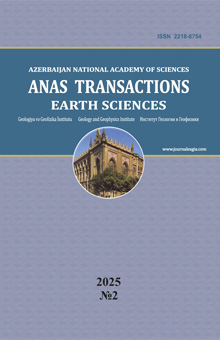Geological risk assessment in hydrocarbon exploration
Bagirov E.
SOCAR, Baku, Azerbaijan: elchin.b.bagirov@socar.az
Summary
The geological risk in hydrocarbon exploration is defined as the probability of the absence of a hydrocarbon accumulation in the study area. Exploration prospects can be characterized by three parameters that determine its value: expected gain (or volume of hydrocarbons), risks (or chance of success or failure) and cost of the project. Expected volumes are usually estimated in probabilistic terms, taking into account uncertainties. These uncertainties and risks often overlap and that leads to overestimation of geological risks. A methodology for estimating of potential reserves including geological risks is proposed in the paper. This distribution of hydrocarbon resource volumes indicates also both, the probability of the absence of hydrocarbons (geological risk) and the probability of volumes below a certain threshold (chance of commercial failure). The calculations are carried out by using the Monte Carlo method.
Keywords: hydrocarbon, exploration, risk, probability, petroleum system
REFERENCES
Feller W. An introduction to probability theory and its applications, V.2. John Wiley & sons. 1968, 667 p.
Rose P. Risk analysis and management of petroleum exploration ventures. AAPG methods in exploration series, 2001, 164 p.
Керимов В.Ю., Бондарев А.В., Мустаев Р.Н., Сенин Б.В. Оценка геологических рисков при поисках и разведке месторождений углеводородов. Нефтяное Хозяйство, Москва, № 4, 2015, с. 36-41.
DOI: 10.33677/ggianasconf20230300017
